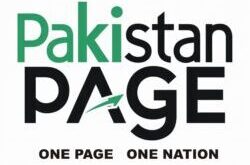Women empowerment–An imperative to sustainable development
In an era of gender diversity where the culture of inclusivity emerges as a trend for sustainable development, women’s representation in leadership positions and raising a breed of well-educated and trained women folk has become crucial for nations.
As women participation in policy making and execution, is now a global known fact, creating more and more education and leadership opportunities for female segment in countries like Pakistan where half of population comprises women, is an enormous challenge.
Better gender balance in business leadership is also inextricably linked with achieving the Sustainable Development Goals (SDGs) under United Nations (SDG 5); attainment of gender equality, is impossible without women’s sizable representation at the top.
By ignoring their vibrant participation, the nations’ not only lack revered values of justice, harmony and tolerance but also overall development and a sense of security against intolerant behaviors of male dominating societies.
“Women representation in different walks of life including economy, policymaking and management is important to ensure gender equality,” remarked Fouzia Khan Bhittani, an educationist from Quaid-i-Azam University. ”Traditionally in societies like ours, policies about women are formulated by men. The question is; how such policies formulated without representation of women, can be fruitful as women know more about their issues.”
She said women can bring different perspectives and viewpoints in decision-making ensuring innovative and better solutions for communities. “Their integration in decision making and policies for their welfare and economic independence, can address multiple societal problems.”
In this context she quoted the example of domestic violence where the women are subjected to a coercive living only because of their economic dependence on male family members.
“When they are solely dependent on male members and are not financially self-sufficient, they are obviously on a weaker side,” Fouzia Khan said. “Having women in leadership positions can provide them opportunity to contribute in nation building and breaking the shackles of stereotype thinking about their position and abilities in families and society as a whole.”
She said it is commonly observed that in many cases women executives deliver much better than the male hierarchy. “But, for elevating them to this pinnacle, we need a realistic thinking about women, provide them better education, training and employment facilities.”
As women comprise half of our population, keeping them away from education, training and better executive opportunities means that we are making half of our population non-productive and irrelevant to national progress.
Female doctors, teachers, jurists, executives and even preachers can have better understanding of feminine issue and their redressal and pave way for building a society offering equal and congenial living for our half of population.
“Women have the ability to wear many hats within their role. They often have a more balancing role in their career, household and taking guidance from others to perform better,” Fouzia Khan said.
In conservative societies like ours, commonly men at executive positions shy to indulge in sensitive feminine issues. Therefore, when there is a female executive especially at a women dominated institution or department, people of same genre can freely discuss sensitive issues and resolve them.
Since, women are also empathetic, this quality may also make them better leaders and help quickly adjust themselves to new situations. In addition, they have better communication skills and can have meaningful conversation with stakeholders making them better understand their viewpoint.
A report issued by International Finance Corporation (IFC) also refers to an increased understanding of the importance of gender-diverse leadership for inclusive and sustainable economic growth.
“When more women are empowered to lead, everyone benefits. Decades of studies have shown women leaders helping to increase productivity, enhance collaboration, inspire organizational dedication and improve fairness,” opined Chairperson Pakistan Academy of Letters Dr Najiba Arif.
“Different experiences provide us with different strengths, skills and perspectives. The experiences of women are important additions in different traits,” she said. “Their unique way of being strategic, leading teams and decision making helps make the workplace more innovative and collaborative.”
“Women do not hold a standard set of skills and their response varies to different issues. That is why a diverse female role as an executive, becomes a strength for an organization,” Najiba said.
All executive roles either in the form of a top family woman or the head of an organization, women’s sense of responsibility and execution of policies and decisions, most often becomes more productive for making a family or an organization, an ideal.
“Women empowerment is synonymous to nation empowerment,” stated Chairperson Women Parliamentary Caucus Shahida Rehmani. “We have several examples in global community where women contributed less to none in grooming younger generation, societal responsibilities, departmental performance and decision making.”
She emphasized better education, training and character building opportunities for women to prepare a skilled female squad to serve at important executive positions in the country.
“From their childhood to schooling and adolescence, they must be equipped with relevant knowledge, skills and acumen to prepare them as good mothers, good executives and good leaders, so they become an asset for the country and nation,” Shahida said.

